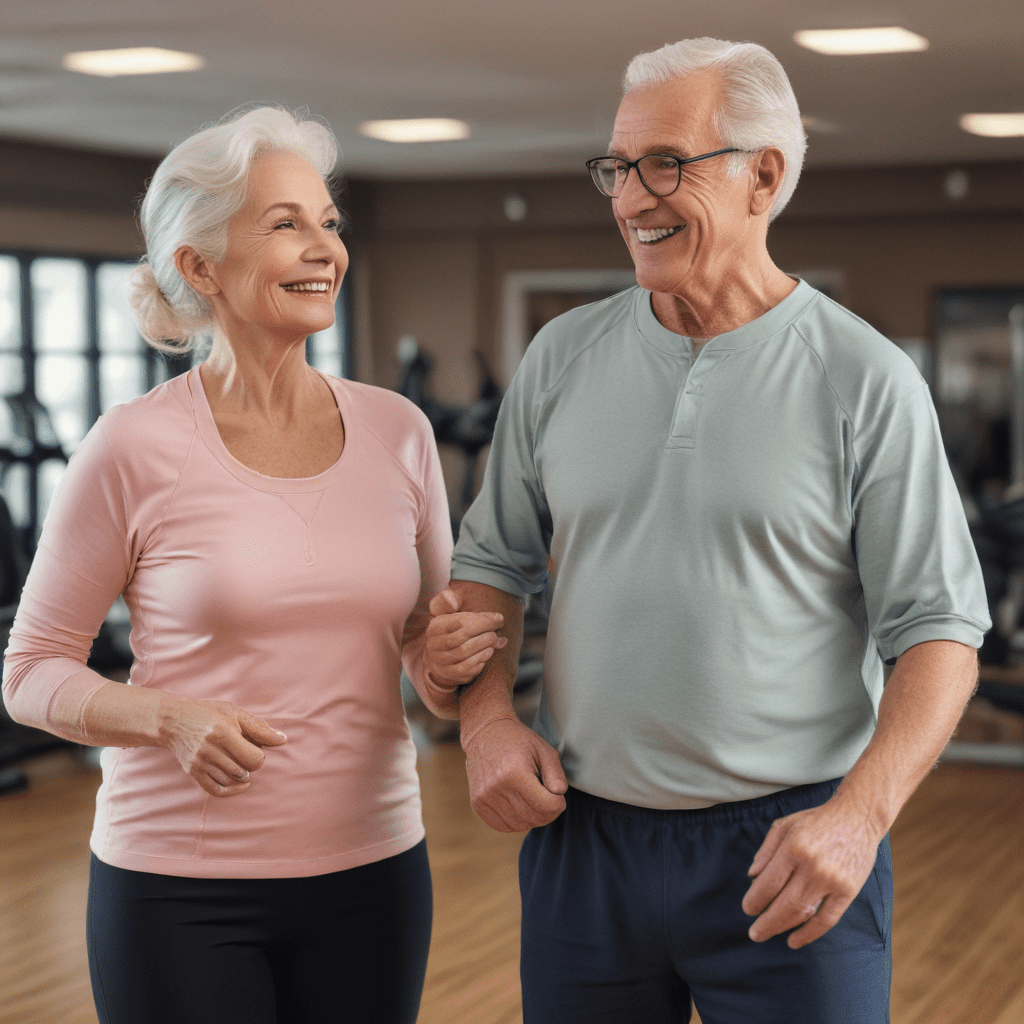
Benefits of Exercise Social Engagement for Seniors: Connection and Community
Increased Social Interaction
Exercise social engagement provides seniors with opportunities to interact with like-minded individuals, fostering a sense of belonging and reducing feelings of isolation. Group fitness classes, walking clubs, and sports leagues offer structured settings for socializing, allowing seniors to make new friends, share experiences, and engage in meaningful conversations.
Reduced Isolation and Loneliness
Loneliness is a common concern among seniors, particularly those living alone or with limited social connections. Exercise social engagement combats loneliness by creating a supportive environment where seniors can feel valued and connected. Regular social interactions during exercise activities alleviate feelings of isolation, boost mood, and improve overall well-being.
Enhanced Mood and Well-Being
Exercise has been shown to release endorphins, known for their mood-boosting effects. Social engagement during exercise enhances these benefits by providing additional emotional support and camaraderie. Seniors who participate in social exercise programs report improved mood, reduced stress levels, and increased overall happiness.
Cognitive Stimulation and Memory Improvement
Exercise social engagement not only enhances physical health but also supports cognitive function. Engaging in social interactions while exercising stimulates the brain, improves memory, and enhances cognitive abilities. Group discussions, problem-solving exercises, and recalling shared experiences during social exercise activities keep the mind active and promote cognitive health.
Improved Physical Health and Mobility
Exercise is essential for maintaining physical health and mobility, particularly among seniors. Social engagement during exercise motivates individuals to stay active and consistent with their fitness routines. Group support and encouragement help overcome barriers to exercise, such as lack of motivation or physical limitations, leading to improved physical fitness and increased mobility.
Fostered Camaraderie and Belonging
Exercise social engagement fosters a sense of camaraderie and belonging among seniors. Participating in group exercise activities creates a shared experience, allowing individuals to connect with others who share similar interests and goals. This sense of community and support motivates seniors to stay active and engaged, promoting a positive self-image and enhancing their overall well-being.
Community Building and Intergenerational Connections
Exercise social engagement can serve as a catalyst for community building and intergenerational connections. Senior centers, community parks, and fitness facilities often offer fitness programs that bring together individuals of all ages and backgrounds. These programs facilitate meaningful interactions between seniors and younger generations, fostering a sense of purpose and contributing to a more inclusive and vibrant community.
Increased Access to Social Support and Resources
Exercise social engagement provides seniors with increased access to social support and resources. Group fitness programs often connect participants with other community organizations and services that cater to the needs of seniors. Through these connections, seniors can access additional support, such as transportation assistance, nutritional counseling, and health screenings, enhancing their overall well-being and quality of life.
Reduced Risk of Falls and Other Accidents
Social engagement during exercise can help reduce the risk of falls and other accidents among seniors. Group exercise programs provide a safe and supervised environment where seniors can improve their balance, coordination, and mobility. Regular exercise also strengthens muscles and increases flexibility, reducing the likelihood of falls and other injuries.
Enhanced Quality of Life and Meaningful Aging
Exercise social engagement contributes to an enhanced quality of life and supports meaningful aging for seniors. By promoting social interaction, reducing isolation, and improving physical and cognitive health, exercise social engagement empowers seniors to live fulfilling and active lives. It fosters a sense of purpose, belonging, and well-being, allowing seniors to age gracefully and maintain their independence.
Frequently Asked Questions (FAQs)
Q: What types of exercise social engagement activities are available for seniors?
A: Exercise social engagement activities for seniors include group fitness classes, walking clubs, sports leagues, dance classes, and volunteer opportunities. Senior centers, community parks, and fitness facilities often offer these programs.
Q: How can I find exercise social engagement programs in my area?
A: Contact your local senior center, community center, or fitness facility to inquire about exercise social engagement programs. You can also check with your local health department or area agency on aging for information on available programs.
Q: Is exercise social engagement suitable for all seniors?
A: Exercise social engagement is suitable for most seniors, regardless of their fitness level or abilities. Many programs offer modifications and adaptations to accommodate individual needs and limitations. It's always recommended to consult with your healthcare provider before starting any new exercise program.


